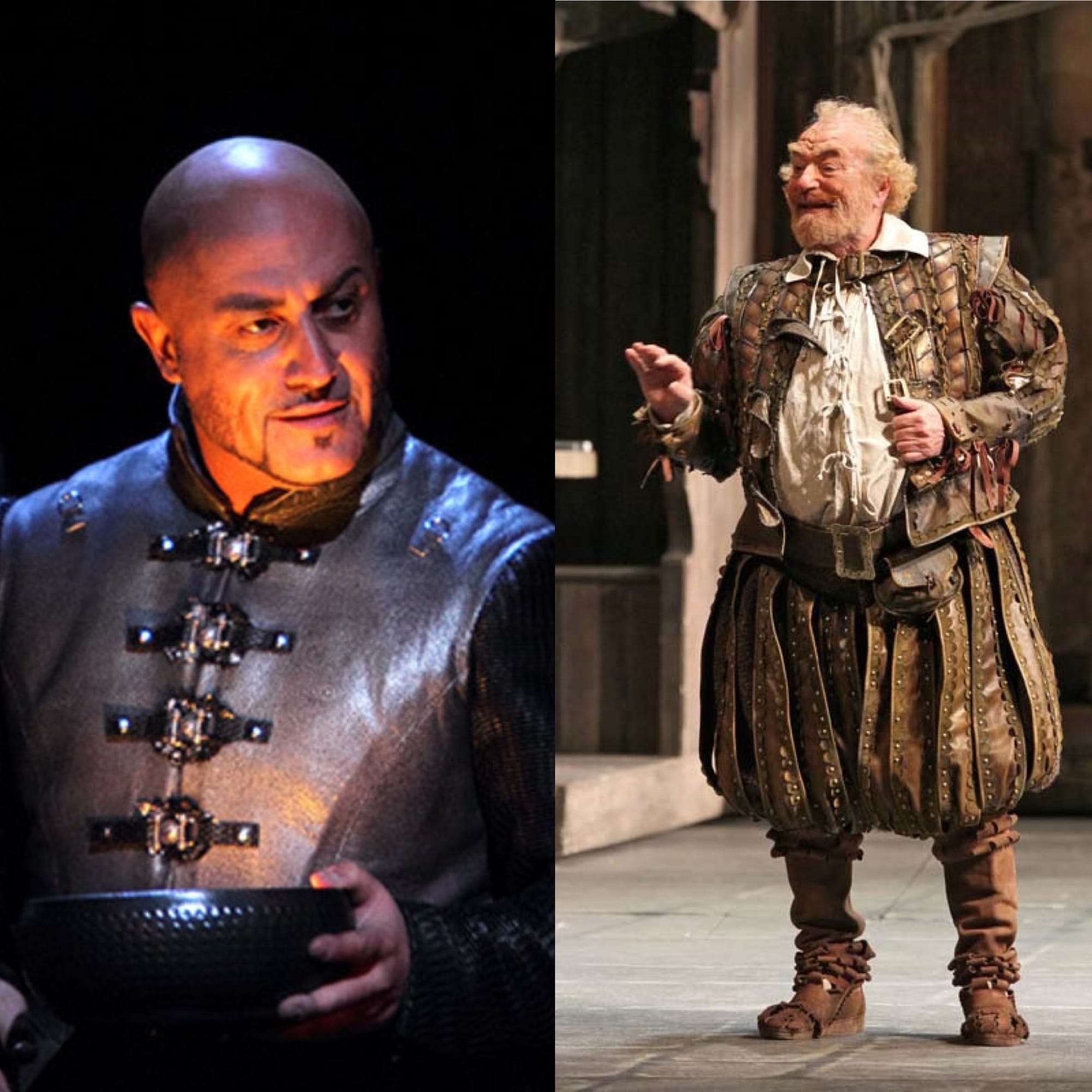THE CREDOS OF IAGO AND FALSTAFF

The Italian composer Giuseppe Verdi loved the plays of William Shakespeare so much that he adapted three of them, 'Macbeth', 'Otello' and 'Falstaff', as operas and had planned to do 'King Lear' which I'm convinced would have been another masterpiece to add to the acclaimed trio.
Two moments that demonstrate Verdi's absolute genius at adapting Shakespeare for the operatic stage are the 'Credo' from 'Otello' (1887) and 'Ehi! Taverniere!' from 'Falstaff' (1893). Interestingly both monologues are sung by baritones and both reveal the true, inner character of both a villain (Iago) and a buffoon (Falstaff).
The differences between the two men couldn't be more stark, however. Iago is fuelled by jealousy and hatred and revels in his black hearted, nihilistic view of mankind whereas the gargantuan Sir John Falstaff is compelled more by wine, women and song and has a massively more warm hearted and optimistic view of the world.
Both are plotters, though one in farce and one in tragedy and both will experience profoundly different outcomes by the end of their respective tales as a direct consequence of their individual ethos.
To illustrate Iago's twisted psychology in the score during the 'Credo', Verdi expertly deploys the use of dissonant harmonies and chromatic lines with a jagged knife-like rhythmic propulsion throughout which mirrors the character's restless, manipulative personality. Though thrillingly orchestrated, one certainly doesn't feel particularly comfortable listening to the sinister thoughts of the man while he lays bare his personal philosophy which was, of course, the full intention of composer Giuseppe Verdi and librettist Arrigo Boito in their combined portrayal of evil incarnate.
Iago
I believe in a cruel God
who created me in his image
and who in fury I name.
From the very vileness of a germ
or an atom, vile was I born.
I am a wretch because I am a man,
and I feel within me the primeval slime.
Yes! This is my creed!
I believe with a heart as steadfast
as that of the widow in church,
that the evil I think
and that which I perform
I think and do by destiny’s decree.
I believe the just man to be a mocking actor
in face and heart;
that all his being is a lie,
tear, kiss, glance,
sacrifice and honour.
And I believe man the sport of evil fate
from the germ of the cradle
to the worm of the grave.
After all this mockery then comes Death.
And then?... And then?
Death is nothingness,
heaven an old wives’ tale.
Sir John Falstaff, on the other hand, seems to practically invite the audience closer toward his damp chest in the opening relative introspection of 'Ehi! Taverniere!' from Scene 1, Act 3 as he recovers his innate sense of self-optimism after being unceremoniously dumped into the Thames in a wicker basket (it's a long story).
Wet, sore and feeling sorry for himself, it is somehow in the midst of his despair that he re-discovers that inextinguishable spark lit inside of him once again, prompted by the downing of some red wine which Verdi literally orchestrates passing down his gullet and absorbed into his intestines, warming his spirits from the inside.
In direct contrast to the absolute, unwavering malevolence of Iago's 'Credo', 'Ehi! Taverniere!' both expresses a more more tonally stable musicality for its character and evokes greater vulnerability for Falstaff whose shifting mood transitions from despair to hope once again.
Falstaff
Hey! Landlord!
Dreadful world! Treacherous world! Evil world! (to the landlord )
Landlord, bring me a pint of mulled wine.
Appalling that, after years of adventure, a knight so bold, and so distinguished, should find himself trussed up inside a basket, to be swathed in foul linen while silly women titter, and flung into the river like some mongrel’s litter.
Without this mighty belly, which floated to the surface,
I would have perished. Brutal ending, bloated to bursting.
Evil world, where is virtue now? Your world is crumbling.
Go, go, old Jack, go. You must continue,
keep stumbling towards your tombstone.
With you, the last great flower
of true English chivalry will vanish.
Oh, what a day of blackness.
Oh, help me, God! I’m far too fat. I am growing old.
I’ll mix a pint of wine with this barrel of river water.
Better, to drink good wine,
and take one’s ease in the sunshine.
If proof was needed of Verdi's dramatic genius adapting Shakespeare for opera then I'm convinced that you would not find two greater examples than these two musical monologues by Iago and Falstaff which demonstrate that the composer from Parma had, much like his literary inspiration William Shakespeare, the ability to convey the full spectrum of humanity, good and evil, with his pen.